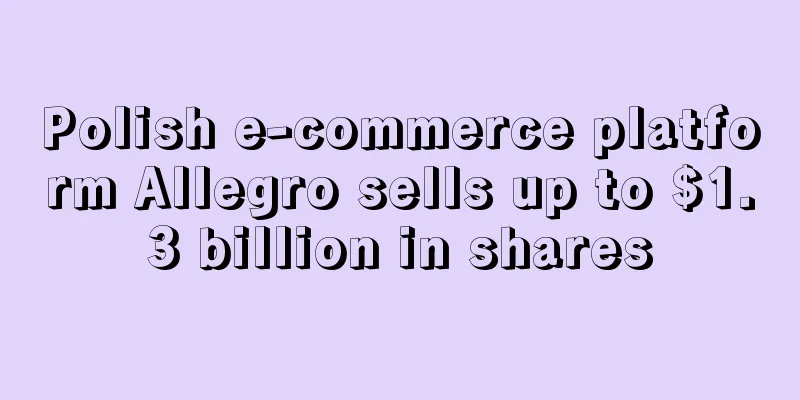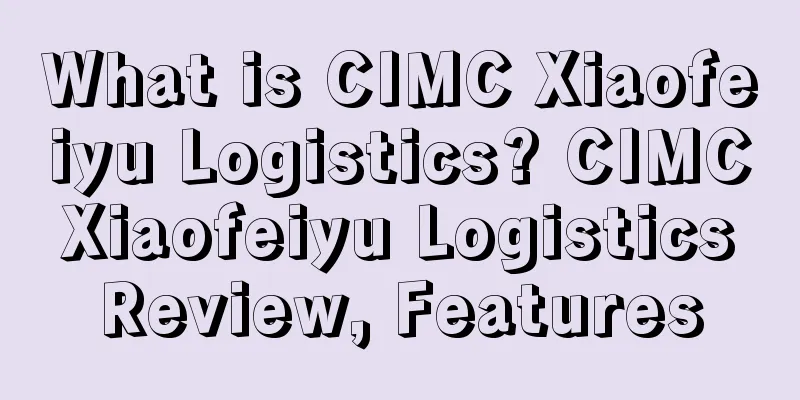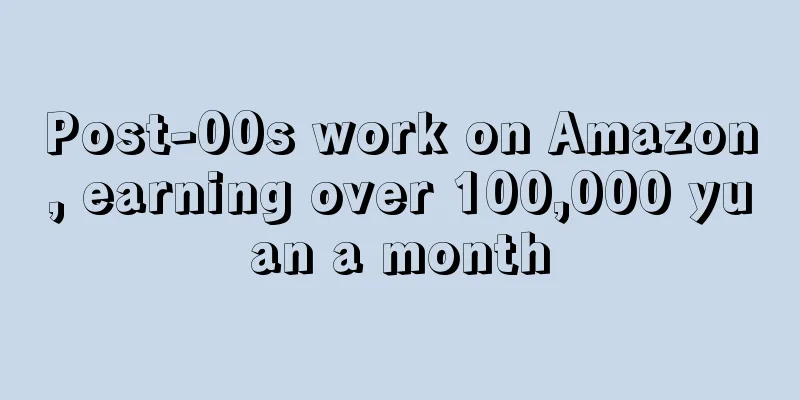Full hosting is a big hit! Factories are going cross-border, and sellers’ profits are cut in half?

|
Who will benefit from the fight between trade sellers and factory sellers?
The competition among cross-border e-commerce platforms is fierce. When a new profit model is proven to be feasible by the market, platforms will inevitably rush to join the game. The "full-hosting model" is one of the most popular "darlings" among major platforms. The new opportunities and challenges brought by full-hosting have also given rise to changes in the cross-border landscape.
It is not difficult to find that although the full-hosting models between platforms are different, they all target factory-type sellers, and factory-type sellers are ushering in a "boom period" in cross-border e-commerce.
The fight between platforms is also intensifying competition among sellers. "A product that was originally priced at $150 has had its price cut by nearly half by some factory-type sellers." The relationship between factory-type sellers and trade-type sellers has become more subtle.
Bringing platforms and sellers to the forefront! Full custody injects fresh blood into cross-border transactions
Everything has two sides, and the advantages and disadvantages of the full hosting model are obvious.
Compared with other industries, cross-border e-commerce still has unlimited "money" prospects. The various myths of wealth creation that have been spread may be somewhat distorted, which is enough to make people outside the circle yearn for it. A large number of factory-type enterprises also want to tear off the "OEM" label and step into the spotlight; In 2023, with the changes in the global consumption structure, the era of breaking down foreign trade orders into small pieces has arrived. Major e-commerce platforms have launched a "crazy rush" factory recruitment. In order to solve the most dissuading operation and traffic problems of novices, the "full trusteeship model" application was born to provide merchants with all-round business guarantees, and merchants only need to focus on supplying goods. Almost all of the major Chinese cross-border e-commerce platforms we are familiar with are involved in it .
How are the cross-border sellers who have joined the full hosting model doing? It is certain that many sellers have gained a lot. One factory-type seller said that the sales of his products have doubled in a short period of time , which is something he did not expect.
Unlike Temu sellers who do not have the right to set their own prices, some platforms give more pricing freedom to sellers who join the full hosting. Many trade sellers have actively joined the game and have reaped great rewards. It is understood that one of the sellers has achieved sales of more than 10,000 orders in a short period of time, and has also driven a rapid increase in sales and exposure of its own brand store.
If the full-hosting model is well implemented, it will be a timely help for factory-type sellers. After all, for them, cross-border operations to C are simply too complicated. For trade-type sellers, it will be icing on the cake. Depending on the focus of the platform, some people use it as a clearance channel, while others use it as a brand promotion channel. Regardless of the purpose, it means that sellers have one more sales option.
For the platform, the advantages of full hosting are also very significant. It is undeniable that the Temu platform has become famous overseas with the strong help of full hosting. According to the latest research by Marketplace Pulse, Temu ranks first in 14 countries and is the most downloaded shopping application in the United States, France, Italy, Spain, Germany and the United Kingdom. Even though sellers have been constantly complaining, Temu has achieved great success in a short period of time.
Relying on China's strong supply chain advantages, the platform traffic has achieved explosive growth and accumulated a large number of buyers. In summary, the full-hosting model has made Temu, an emerging cross-border e-commerce platform, successful, and has also brought new buyers to those old e-commerce platforms. Only with buyers can there be business. From this perspective alone, full-hosting is beneficial to both the platform and the sellers.
How far can full custody go?
Now the final trend of major platforms seems to be the full-hosting model , but opportunities and challenges coexist. Some sellers have already failed and left the market miserably after their sales plummeted.
"The regulations on full custody vary among the major platforms. One platform requires that the seller does not have the right to set the price of the product . In other words, we can understand that the property rights belong to the platform, but the platform does not have to pay any compensation before the product is sold . In fact, the risks are borne by the seller. "
In addition, we can still believe that the full trusteeship model is still a new way of playing. As this model matures, more and more factory-type sellers will enter the market, the number of stores and SKUs will be close to saturation, and there will be more and more uncontrollable factors, and problems will also appear. For example, if the platform does not have a relatively fair evaluation standard, but a machine algorithm, then it will simply and crudely use low prices as the evaluation standard, and some high-quality products will be more likely to be forgotten, and price involution will become more serious. "Platforms that win the market with low prices are not good for global trade. In the long run, they will kill domestic and foreign traders, and domestic factories will make short-term profits, but in the end they will not benefit."
Does full trusteeship have a future? In the eyes of industry insiders, how far the full trusteeship model can go ultimately depends on whether the sellers can make money from it, which is closely related to the choice of the platform! In this model, if the platform and the sellers are a community of interests, everyone will profit. If the ultimate goal of the platform is just to harvest the sellers, it is likely that both sides will suffer. It can be seen that whether the full trusteeship model of major e-commerce platforms can continue actually depends on whether the platform will give benefits to sellers!
Factory-type sellers are doomed! Product sales prices are cut in half?
An undeniable fact is that as full-hosting breaks down cross-border barriers, more factory-type sellers will come to make money, and cross-border newcomers and product numbers will usher in new growth space.
"In the future, the advantages of integrated industry and trade will only become more and more obvious. What will follow is rampant price wars, more common internal competition, and small businesses without competitive advantages will be eliminated faster." A trading seller said that major platforms are stepping up their efforts to eliminate middle traders, and middle traders will become increasingly uncomfortable in the future, especially small sellers with no competitive advantages.
It is detailed that factory-type sellers have their own price advantage! A product could have been sold for $100 with considerable profit, but some factory-type sellers directly lowered the price to $70, $60 or even $50. Some trade-type sellers are in a dilemma. They cannot sell the product if they set the price too high, and they cannot make any profit if they set the price too low...
Of course, there are also some factory-type sellers who do not rely on full hosting, but directly operate on platforms such as Amazon, and also want to win by price. In the short term, they may quickly increase sales, but they also shorten the product life cycle, and eventually force the entire category into a vortex of price wars. "This is hurting others and not benefiting oneself. After removing the first-mile fees, platform commission fees, advertising fees, etc., no one will make any money!"
In addition to the old-fashioned price issue, there are other conflicts between factories and sellers, such as factories secretly selling products. "Some products sell very well, and some supplying factories will come to the market personally after seeing this. Not only will they lower the price, but they will also report all the top sellers on the grounds of patents."
However, price wars and malicious competition do not only exist among factory-type sellers. Even without the boost of the full-hosting model, there will be other factors that accelerate the cross-border elimination process. Who can ultimately stay depends on their own abilities!
|
<<: Amazon scan number again before PD, sellers hang 30 accounts
>>: Salary is up to 120,000! Selling Gravity Layout ChatGPT
Recommend
What is 1981 Technology Operation? 1981 Technology Operation Review, Features
1981 Technology Company has been committed to bui...
What is Hangzhou Qianyu Technology Co., Ltd.? Hangzhou Qianyu Technology Co., Ltd. Review, Features
Hangzhou Qianyu Technology Co., Ltd. is a global ...
Cross-border e-commerce digital API platform Doushabao Technology reaches cooperation with Shopee
Recently, the cross-border e-commerce digital API...
What is 1688 Cross-border Special? 1688 Cross-border Special Review, Features
1688 Cross-border Exclusive Supply is a cross-bord...
Belgian consumer preferences revealed
The pandemic has led to major changes in consumer...
What is HJT? HJT Review, Features
Huaju Tongchuang is an e-commerce company focusing...
In the post-epidemic era, British consumers are leading the mobile shopping boom
According to the latest data from Klarna, the UK ...
What is Copia Globa? Copia Globa Review, Features
Founded in 2013, Copia Globa is one of Kenya’s fa...
To improve customer satisfaction, sellers should get these four tips!
Customer satisfaction is no stranger to all selle...
Fined more than 3 million! Tongtuo's parent company is in trouble again...
Recently, Tongtuo's parent company Huading Ho...
Breaking News! Amazon's review policy has been significantly adjusted
Amazon's review policy has once again undergo...
Practical tips | Seven tips for gaining followers on TikTok
Recently, Influencer Marketing Hub shared some ti...
What is Zepz? Zepz Review, Features
Zepz , formerly known as WorldRemit, is a P2P onl...
What is Hungry Harvest? Hungry Harvest Review, Features
Hungry Harvest is a subscription produce brand th...
Another strict investigation! A large number of seller accounts have been suspended
Soon after the beginning of the year, Amazon laun...









